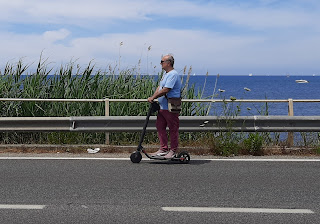In many countries with fewer new daily infection cases people are going back to work, as lockdowns to stop the further spread have been lifted across the world. Experts say the scale of a second wave can be reduced by wearing masks and observing social distancing rules, considering that the future shape of pandemic will be decided by people actions and nature of the virus. Actually, if societies reopen too soon, the first wave of epidemic may not be completely eradicated.
The bad news is that some countries, such as Germany, Lebanon, Saudi Arabia, and South Korea, have reported a huge rise in new infections after easing restrictions. That's the main reason why many governments, mainly in the Middle East and East Asia, have been adopting some proactive steps with the aim of push people behaviour in a certain direction. In this perspective, in those countries wearing a mask is required by law. So people can't walk across any store not wearing a mask or without showing their mobile phone app that shows that they are not been tested positive.
 In brief, since the Covid-19 epidemic hit the world in early 2020, societies have been learning the lesson: they have to act early and be prepared in terms of testing kits, medical facilities, education of the people, testing capabilities, social distancing rules, and so far.
In brief, since the Covid-19 epidemic hit the world in early 2020, societies have been learning the lesson: they have to act early and be prepared in terms of testing kits, medical facilities, education of the people, testing capabilities, social distancing rules, and so far.
And last but not least, the easing of lockdowns has showed the importance of individual, emission-free, socially distanced transport, as governments try to prevent spiked in car use, and pollution. And this has paved the way to e-scooters, that are seen as an environmentally friendly options for short journeys. But using e-scooters on roads without sufficient infrastructures, such as cycle lanes, may be risky.
